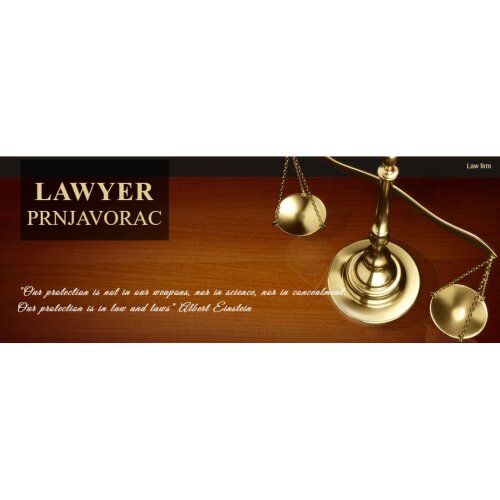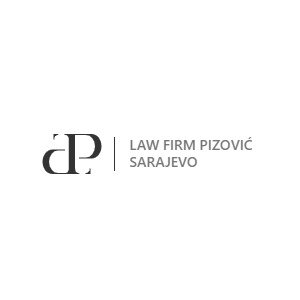Best Tax Lawyers in Bosnia and Herzegovina
Share your needs with us, get contacted by law firms.
Free. Takes 2 min.
Or refine your search by selecting a city:
List of the best lawyers in Bosnia and Herzegovina
About Tax Law in Bosnia and Herzegovina
In Bosnia and Herzegovina, the tax system is multi-layered, reflecting the complex administrative and political structure of the country. The main taxes include Value Added Tax (VAT), income tax, and corporate tax, and these are governed by laws at the national, entity, and local levels. The Indirect Taxation Authority operates at the national level and is responsible for VAT, customs, and excises, while direct taxation such as personal and corporate income taxes are handled by the entities and Brčko District. The tax rates and regulations can vary significantly between the Federation of Bosnia and Herzegovina and the Republika Srpska, adding to the complexity.
Why You May Need a Lawyer
Legal assistance in tax matters can be crucial due to several scenarios, including:
- Complex Tax Filings: Navigating the different requirements across the national and entity levels, especially with corporate taxes.
- Disputes with Tax Authorities: Individuals or businesses may face audits or disputes requiring legal negotiation.
- Optimizing Tax Liabilities: Businesses and high-net-worth individuals often seek ways to legally reduce their tax outlay.
- Cross-Border Transactions: Involving international tax considerations which require specialized knowledge.
- Compliance Issues: Ensuring adherence to all local laws and regulations to avoid penalties.
Local Laws Overview
Key aspects of tax law in Bosnia and Herzegovina include:
- VAT: A flat rate of 17%, applicable to most goods and services.
- Corporate Income Tax: The standard rate is 10% in both the Federation of Bosnia and Herzegovina and the Republika Srpska.
- Personal Income Tax: Varies between entities; it's generally a flat tax at the entity level.
- Social Security Contributions: Paid by both employer and employee, covering health, pension, and unemployment.
- Customs Duties: Managed by the Indirect Taxation Authority and aligned with EU standards for trade.
Frequently Asked Questions
What is the VAT rate in Bosnia and Herzegovina?
The VAT rate is a flat 17%, applied uniformly across the country.
How is corporate tax structured?
Corporate tax is 10% of taxable income for companies in both entities.
Do tax laws differ across the entities?
Yes, while the VAT is the same nationwide, income and corporate tax laws can vary between the Federation of Bosnia and Herzegovina and the Republika Srpska.
What are the tax obligations for expatriates?
Expatriates are taxed on their Bosnia and Herzegovina-sourced income, with potential implications for global income depending on residency status.
How can I manage a tax dispute in Bosnia and Herzegovina?
Disputes are generally handled through administrative procedures before escalating to legal action, often requiring a tax lawyer's expertise.
Are there any tax incentives for businesses?
Various incentives may be available, especially for investments in underdeveloped regions or specific industries, subject to entity-level regulations.
What documents are needed for tax filings?
Required documents typically include financial statements, proof of income, and any applicable receipts or invoices.
How often are tax returns filed?
Most individual and corporate tax returns are filed annually, while VAT returns are filed monthly.
Is there a double taxation agreement?
Bosnia and Herzegovina has entered into double taxation agreements with several countries to prevent income being taxed twice.
How can I rectify a mistake in a tax filing?
Errors in tax filings can be amended by submitting a correction request to the applicable tax authority branch.
Additional Resources
For more information, consider reaching out to:
- Indirect Taxation Authority: Responsible for VAT, customs duties, and excises.
- Entity Tax Administration Offices: For specifics on entity-level direct taxes.
- Local Chambers of Commerce: They offer guidance and support on financial and legal matters.
- Private Tax Consultancies and Law Firms: Can provide tailored advice and representation.
Next Steps
If you require legal assistance in tax matters, it is advisable to:
- Gather all relevant financial documents and records.
- Identify the specific tax issues or concerns you need help with.
- Research and contact a reputable law firm or tax advisor specializing in Bosnia and Herzegovina's tax law.
- Prepare a list of questions and objectives for your initial consultation to maximize the effectiveness of the meeting.
Taking these steps will help you efficiently navigate the complexities of tax law in Bosnia and Herzegovina.
Lawzana helps you find the best lawyers and law firms in Bosnia and Herzegovina through a curated and pre-screened list of qualified legal professionals. Our platform offers rankings and detailed profiles of attorneys and law firms, allowing you to compare based on practice areas, including Tax, experience, and client feedback.
Each profile includes a description of the firm's areas of practice, client reviews, team members and partners, year of establishment, spoken languages, office locations, contact information, social media presence, and any published articles or resources. Most firms on our platform speak English and are experienced in both local and international legal matters.
Get a quote from top-rated law firms in Bosnia and Herzegovina — quickly, securely, and without unnecessary hassle.
Disclaimer:
The information provided on this page is for general informational purposes only and does not constitute legal advice. While we strive to ensure the accuracy and relevance of the content, legal information may change over time, and interpretations of the law can vary. You should always consult with a qualified legal professional for advice specific to your situation.
We disclaim all liability for actions taken or not taken based on the content of this page. If you believe any information is incorrect or outdated, please contact us, and we will review and update it where appropriate.
Browse tax law firms by city in Bosnia and Herzegovina
Refine your search by selecting a city.













